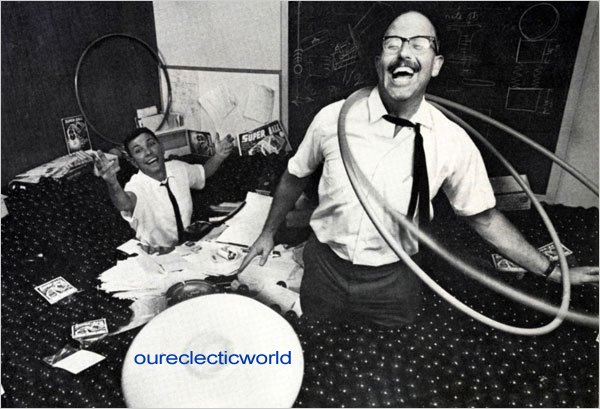 This great interview was posted on the popular New York City blog, Gothamist, today. I'm an avid fan of This American Life and will continue to post anything I stumble across revolving around the show on this blog. There is a lot to learn about narrative from Ira Glass.
This great interview was posted on the popular New York City blog, Gothamist, today. I'm an avid fan of This American Life and will continue to post anything I stumble across revolving around the show on this blog. There is a lot to learn about narrative from Ira Glass. ---
Ira Glass is the brains, heart and larynx behind the wildly popular program This American Life; each show employs a theatrical, multiple-act structure to carve strange slices of life out of a unique thematic pie. The show began almost 12 years ago as a Chicago public radio program but has since mutated into an Emmy-nominated TV series on Showtime – a leap that prompted Glass and his team to relocate to New York City, bringing the radio version in tow. But Glass still keeps one foot in Chicago; he’s compiled a new book whose proceeds benefit 826CHI, the free writing program open to all students in Chicago. He’ll be appearing at Town Hall Monday night with Susan Orlean, Malcolm Gladwell and Chuck Klosterman, who have each contributed to the book, called The New Kings of Nonfiction. (Tickets cost $30; all proceeds benefit 826CHI.)
Did you have any dreams of working in radio as a child? No, like most people I had no interest in radio. I only got interested in radio once I talked my way into an internship at NPR’s headquarters in Washington, D.C. in 1978, never having heard the network on the air.
You and Todd Haynes both majored in semiotics at Brown. Were you there at the same time? I think we were there at the same time but I didn’t know him.
Perhaps not everyone is familiar with what a degree in semiotics involves. Can you please sum it up for us? Yes. Semiotics is an unfortunately pretentious body of mostly French literary theory. What I liked about it was that it gives you a toolbox of ways to think about how to make a story. Semiotics is uninterested in questions like, “What did the author intend?” Or “What does this story say about the author’s era?” Semiotics is interested in how a story gives us pleasure, how it draws us in, why is it satisfying for there to be suspense and for a story to resolve. It’s all about what makes narrative engage us. And so there are things that I learned as a semiotics major that I use every day on my job.
Can you give us an example of that? One simple thing has to do with something the writer Roland Barthes writes about in his book S/Z. He talks about this thing called the proairetic code, which he cops from Aristotle. It’s a sequence of motions that creates suspense no matter how banal it is. You simply get the action moving. This thing happened, and then this thing and then that led to this next thing and then that next thing. And we inevitably wonder what will happen next. It’s like a striptease; we feel like things are going to be revealed. And we use that in every episode of the show. The reason why this show starts with action instead of starting with a theme song and listing what’s going to come up in this hour is because I think starting with action can just pull you into the show more deeply and then you’re inside the show and inside the story before you have a reason to wonder why.
(More...)


No comments:
Post a Comment